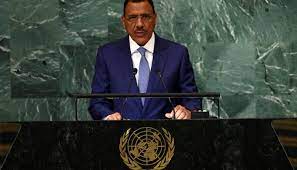
The National Bureau of Statistics (NBS) has reported that food scarcity, insecurity, and rising prices have led Nigerian households to reduce their consumption, with 65 percent unable to afford healthy meals due to financial constraints.
The findings were revealed in the latest General Household Survey Panel (Wave 5) report, conducted in partnership with the World Bank.
The report highlighted that 71 percent of households were affected by price hikes on key food items, and food shortages impacted over a third of households in the past year. These shortages were particularly severe during the months of June, July, and August, further deepening the food insecurity crisis.
As a result, nearly half of the households (48.8 percent) reported cutting back on food consumption as a coping strategy. “In the past 12 months, more than one-third of households faced food shortages, which were most frequent in June, July, and August,” the report noted.
The report also revealed regional disparities, with the South-South zone experiencing the highest levels of food insecurity across five out of eight indicators. In contrast, the North-Central zone showed the lowest rates of food insecurity in six out of the eight indicators.





